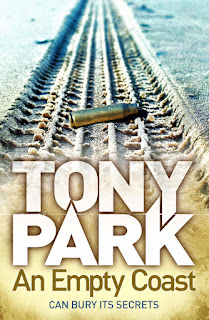How I screwed up by breaking my three golden rules of research
Unfortunately, errors
happen in books despite the time authors, publishers and editors spend
checking.
It’s annoying
and I know as a reader that one small mistake can undermine the authenticity of
an entire book.
I had a couple
of howlers in my latest book, An Empty Coast, relating to firearms. What annoys me most is that if I’d followed
my rules of research they wouldn’t have happened.
If you’re at all
interested, I’ll give you my three rules of research, and you can see how I screwed
up.
1.
1. Do not rely on the internet
This is my
cardinal rule. I’ve wasted too much
time, especially in my earlier novels, looking for stuff on the internet. I find different spellings for place names and
foreign words, and (often vastly) different takes on the same subject matter.
I needed some
information on the Russian-designed Dragunov sniper rifle, which features at a
pivotal moment in An Empty Coast, and learned that it fires the 7.62x54mmR
round. Sonja (my heroine) has to pick up
a discarded empty rifle (I won’t tell you why) and loads it with some
ammunition that she has with her.
Therein lies the problem – I found a reference online that said the
standard Russian 7.62x39mm round, as used in the AK 47 assault rife (have I
lost you yet?) could also be used in a Dragunov.
As I read that,
I thought, ‘how weird’, but I didn’t do any more checking. Why not?
Because it suited the story
and was an easy fix to a corner I had written myself into. And I needed to get on with writing the
story.
Fact: no, you cannot interchange those rounds in a
Dragunov rifle, as several people have taken the time to point out to me since
the book was first released.
2. 2. If you need to know something, find an
expert
The only thing
the internet is useful for is finding people who actually do know what they’re
talking about and then contacting them.
If I need to
know how to perform minor surgery in the field I’m far better off asking a
friendly doctor than consulting an online medical forum. Same thing goes for firearms.
I have served in
varying capacities in the Australian Army for more than 30 years so I know little bit about guns. And there’s another pitfall for novelists – a little bit of knowledge is a dangerous
thing. I’ve never fired a Dragunov
sniper rifle, just as I never carried a Glock pistol in the army (I got
something wrong about Glocks as well in the book), so instead of winging it, I
should have asked someone.
3.
3. Research retrospectively
Finally the last
rule I follow is to not waste time (and it is usually a waste) researching
while I’m writing. In 99.9 per cent of
cases if I don’t know something while writing (and it happens a lot), I make a
note to myself in the manuscript to go back and check it later.
This allows me
to crack on with the story – the most important thing in my line of work. Secondly, when I finish my manuscript and go
back to the start and do my first edit I may very well find that I don’t need
all that information that I reminded myself to check.
Thirdly, when I
find I do need some specific piece of information this process means that when
I find my expert in the required field I do not waste his or her time with a
list of speculative research questions.
I will go to them seeking very specific answers.
If I’d followed
my rules of research I would have just made a note to myself to see how Sonja
could have found a suitable round for her rifle, or possibly changed the scene
altogether. I should have (but didn’t)
then sent my manuscript to someone who knew about guns and ammunition and asked
them to check my references to a subject I clearly did not know enough about.
The good news is
that I’ve just finished correcting the manuscript of An Empty Coast so that the
eBook and the next printed editions will be correct.
Next time I’ll
stick to my own rules and hopefully I won’t shoot myself in the foot – not that
I could have with a 7.62x39mm round.



Comments